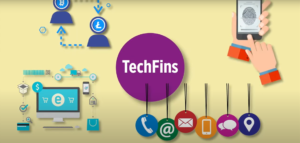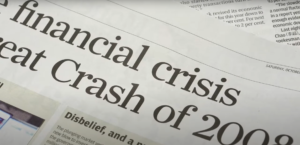Transcript
Southeast Asia is one of the fastest-growing regions for FinTech. It’s super diverse in terms of culture and people, but also levels of economic development. On one hand, you have one of the most developed, futuristic countries in the world with Singapore, but then several countries in the region where the populations are predominantly unbanked or underbanked.
When I consider FinTech’s potential, one of the countries that comes to mind is Myanmar. I first travelled to Myanmar in 2010, about a year before it started its current economic liberalization. At that time, credit cards really didn’t work in the country and overseas ATM cards were not compatible with domestic cash machines since Myanmar was isolated from the global financial system. It was, and in many ways still is, a very cash-dominant economy. At the time of my visit, visitors needed to bring in with them all the cash they needed for their trip, otherwise it was going to be very difficult to access cash from overseas sources.
In light of that situation, one of the FinTech ventures working to create greater access, financial inclusion, and economic efficiency in Myanmar is a company called Wave Money, a mobile financial services provider that was launched in 2016.
To see Wave Money’s attractiveness, we just need to look at a simple case, which is featured on Wave Money’s website.
Imagine you’re a worker who sends 20,000 kyat, approximately 13 USD, every month to your parents in a rural village. Prior to Wave Money, you would need to send your parents money on the morning bus, and your parents would receive it once the bus arrived. This is obviously a tricky proposition. You or your parents can’t open a bank account because not only don’t you have enough for the minimum deposit, since you’ve never used a bank before, you are not sure how they operate or whether you can trust them.
As an alternative, through Wave Money you can send a payment through your mobile device or a Wave Money agent, and your parents, even if they don’t have a mobile phone can receive the cash from a Wave Money agent in their village without any delay.
In this example, we see lots of potential issues related to trust, time efficiency, security, accountability, and a number of other themes that we have covered during the course. We can also easily see the tremendous market need for such a solution, for the segment of the market that needs it the most.
Based on that need, Wave Money has grown rapidly since it started and is now serving more than 7 million customers through a network that is significantly larger than traditional banks in Myanmar. Wave Money also launched an enhanced mobile app, WavePay, to provide more functions. Reportedly, Wave Money’s payment volume in 2018 was approximately 1.3 billion USD, which is roughly equivalent to almost 2% of Myanmar’s GDP.
Wave Money’s story, and others like it, are sources of our optimism for the great opportunities that FinTech can unlock for many of the world’s neediest. The potential for profound change is exciting for us.
Discussion Questions
- What ethical considerations can you generate from the story of Wave Money?
Additional Readings
- Wave Money Aims For Global Recognition. (2019). Finews Asia. Retrieved from https://www.finews.asia/finance/28329-wave-money-myanmar-financial-services-agent-network-global-recognition
- Hynes, C. (2016). Fintech Holds The Key To Myanmar’s Future. Forbes. Retrieved from https://www.forbes.com/sites/chynes/2016/10/31/fintech-key-myanmar-future/#37979f954880
- Yaworsky, K. (2017). Fintech in Myanmar: Leapfrogging to Mobile Money? Accion. Retrieved from https://www.accion.org/fintech-in-myanmar-leapfrogging-to-mobile-money







